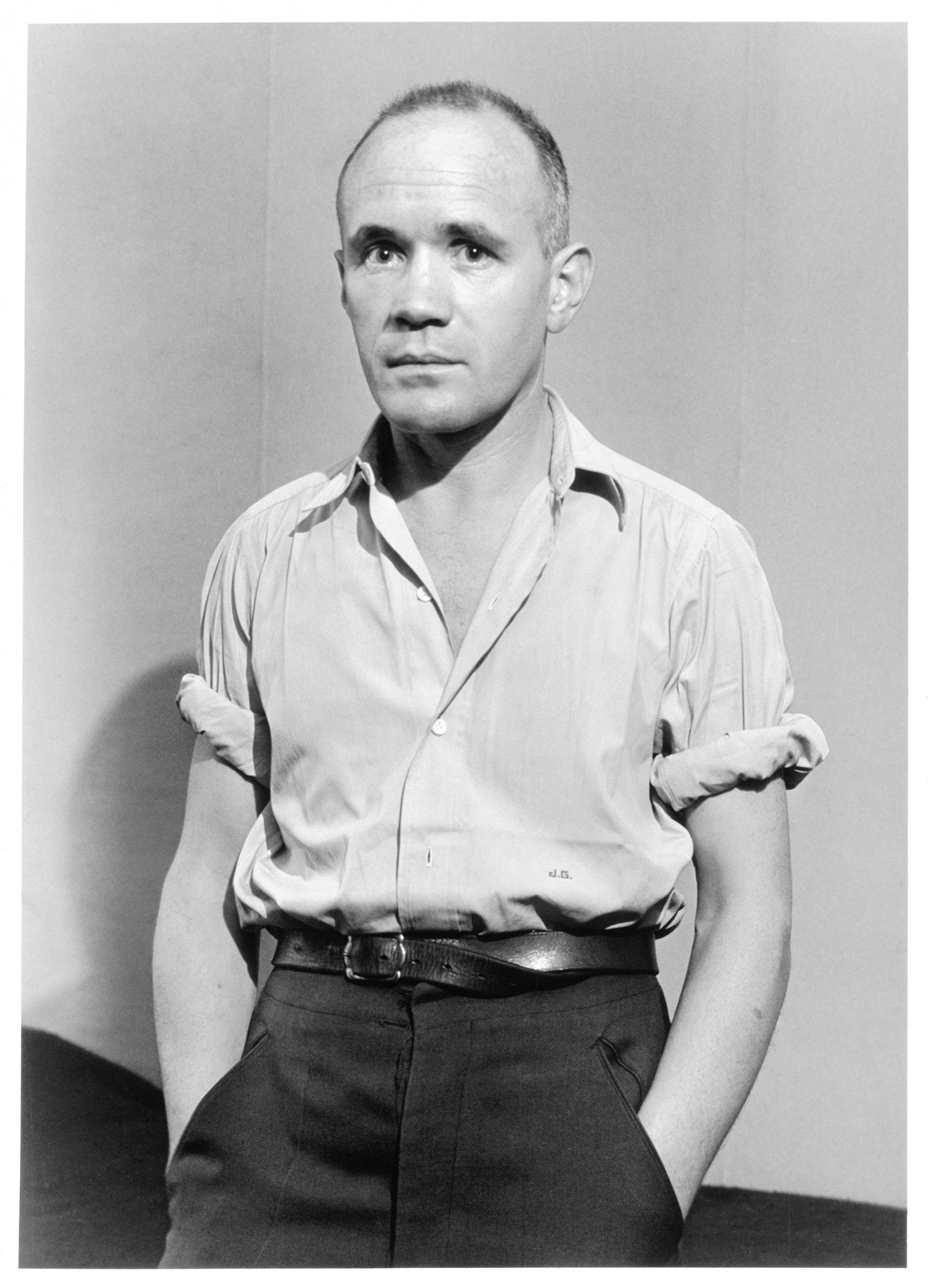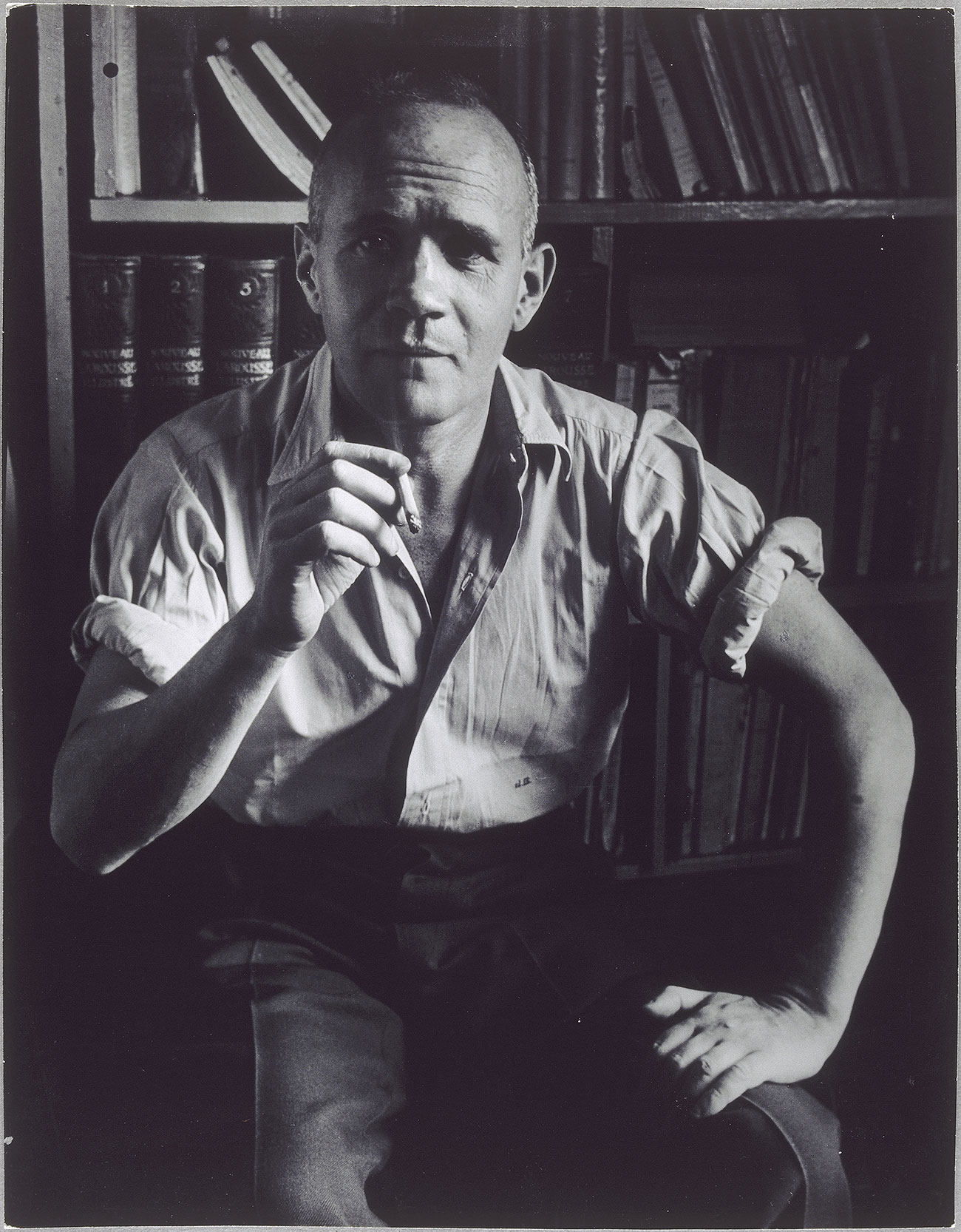Jean Genet, The Great Escape



It has been thirty years since the death of Jean Genet, one of the most flamboyant and most rebellious of twentieth century writers. The Mucem is paying tribute to this poet of freedom and foreign lands, who began his work in prison and finished on the banks of Jordan. The exhibition is rooted in this region that he loved more than any other, the Mediterranean: the point of exit from Europe and entry into Africa and the Middle East. Like the magnetic pole of his trajectory, the Mediterranean offered Genet the chance for a “great escape”.
This is the story of a man who, from the age of thirteen, burned to leave Europe and France. He wanted to go to Egypt, the Middle East, Algeria, and Africa. “My childhood, he said, dreamed of palm trees”. But he dreamed too hard, ran away, swindled, escaped, joined the army and deserted, and finally stole. Arrested, brought back to Paris, he was placed in a reformatory, and then in prison.
He was a delinquent, a man without ties, without father nor mother, without place or country, without hearth or home, but he had a weapon: the French language. In his prison cells at La Santé and Fresnes, with only a primary school certificate and a grammar book, he began to write his first poems, his first novels. With his abandoned childhood, his solitude, his prisons, his memories of drifting miserably through Spain and Europe, always searching for someplace else, with the disaster of his life, he composed one of the most incendiary bodies of work in French literature, finding in poetry a homeland without borders: “France,” he wrote in The Thief’s Journal, “is an emotion communicated from artist to artist”.
Commissioners :
Albert Dichy, literary director of the Institut Mémoires de l’Édition Contemporaine (IMEC)
Emmanuelle Lambert, writer, editor of the exhibition catalogue (co-edition Mucem-Gallimard)
Scenography : Olivier Bedu, Struc Archi
In partnership with the Institut Mémoires de l’Édition Contemporaine (IMEC).
With the participation of the La Fondation d’Entreprise La Poste, sponsor of the exhibition catalogue.
It has been thirty years since the death of Jean Genet, one of the most flamboyant and most rebellious of twentieth century writers. The Mucem is paying tribute to this poet of freedom and foreign lands, who began his work in prison and finished on the banks of Jordan. The exhibition is rooted in this region that he loved more than any other, the Mediterranean: the point of exit from Europe and entry into Africa and the Middle East. Like the magnetic pole of his trajectory, the Mediterranean offered Genet the chance for a “great escape”.
This is the story of a man who, from the age of thirteen, burned to leave Europe and France. He wanted to go to Egypt, the Middle East, Algeria, and Africa. “My childhood, he said, dreamed of palm trees”. But he dreamed too hard, ran away, swindled, escaped, joined the army and deserted, and finally stole. Arrested, brought back to Paris, he was placed in a reformatory, and then in prison.
He was a delinquent, a man without ties, without father nor mother, without place or country, without hearth or home, but he had a weapon: the French language. In his prison cells at La Santé and Fresnes, with only a primary school certificate and a grammar book, he began to write his first poems, his first novels. With his abandoned childhood, his solitude, his prisons, his memories of drifting miserably through Spain and Europe, always searching for someplace else, with the disaster of his life, he composed one of the most incendiary bodies of work in French literature, finding in poetry a homeland without borders: “France,” he wrote in The Thief’s Journal, “is an emotion communicated from artist to artist”.
Commissioners :
Albert Dichy, literary director of the Institut Mémoires de l’Édition Contemporaine (IMEC)
Emmanuelle Lambert, writer, editor of the exhibition catalogue (co-edition Mucem-Gallimard)
Scenography : Olivier Bedu, Struc Archi
In partnership with the Institut Mémoires de l’Édition Contemporaine (IMEC).
With the participation of the La Fondation d’Entreprise La Poste, sponsor of the exhibition catalogue.

